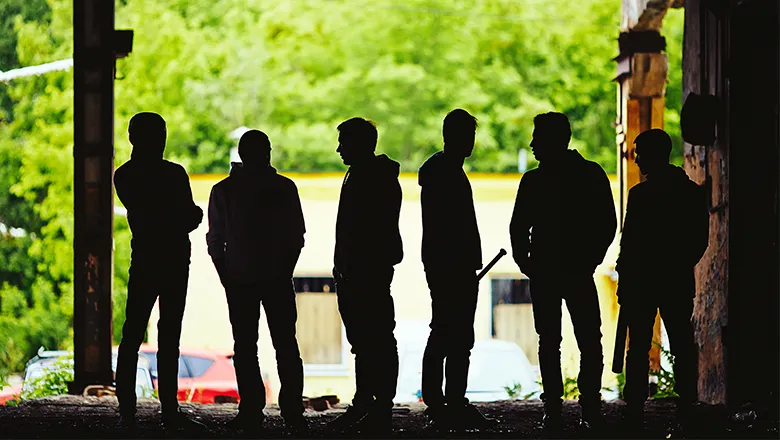11 March 2019
We can tackle knife crime by tackling poverty
Louise Casey
LOUISE CASEY: Knife crime is not a disease – it is a symptom

In 2010 I was appointed as the first victims’ commissioner, and for 18 months I met and listened to parents, families and loved ones of those bereaved through murder and manslaughter.
I saw then that coping with any death is tough and requires resilience, but coping with the death of a beloved child is of a different order. We know, as human beings, that there is a natural order; parents become old and pass away for younger generations to take up the baton.
But when your child is murdered, it is fundamentally different. It is out of the natural order. The idea that another human being killed your child – not illness, not accident – is simply unnatural and abhorrent to our humanity. You never recover.
This is the backdrop to the debate on knife crime and law and order when it should be on the front face. Children should not carry knives. Young people should not be groomed to be in gangs. No parent should be told their child has been killed by another child.
All governments of any political persuasion know that they have some fundamental duties that reach way beyond questions of left or right. Dealing with crime is a key example. They should forget that duty at their peril.
When we have two seventeen-year-olds being killed on our streets in the course of one weekend, we have a significant national problem that they need to respond to.
However, the risk is that the response only deals with the surface, not the underlying causes. We do need a national knife crime strategy – but more importantly we need a national poverty strategy.
Sajid Javid, the home secretary, has moved to saying that we should treat knife crime like a “disease”, calling on all parts of the public sector to tackle it. This acknowledges the much wider range of causes and is welcome, but likening it to a disease misses the point – it is really a symptom.
It’s part of a much bigger issue – that we’ve partly let these problems grow by being distracted from any domestic agenda by Brexit. Domestic violence is up, child poverty is up, homelessness is up, school exclusions are up, not just knife crime and we need to get a grip.
These issues are so clearly inter-related, as the child commissioner’s report on the link between exclusions and getting involved in gangs showed – if you’re excluded from school, you’re 200 times more likely to get caught up in a gang. The correlation between rising exclusions and rising knife crime probably isn’t complete coincidence.
This is all driven by an underlying growth in the numbers of people who feel not just left behind but kept behind. And this plays out in families. In all the families where we know we have a gang member or anyone arrested for knife crime, why are we not knocking their door down with help? What can we do about their brothers and sisters? There isn’t a prevention strategy at a national level and we need one.
It is true that these tragedies disproportionately hit young black boys and men – race is a factor. Fundamentally though this is about poverty, lack of opportunity and hope.
You are significantly more likely to end up committing crime and being in a gang if you’re from a poorer family. If we had a strategy that was tackling poverty, it would deal with many of these issues.
To be in denial about the effect of the austerity agenda shows political weakness. Local government, which provides many of the answers on prevention, has been cut by more than 50 per cent. There are consequences if there is nowhere for a struggling parent to get help.
Likewise, the reaction to the prime minister’s notion that there was “no direct correlation” between the fall in police numbers and knife crime rang hollow. You cannot arrest your way to less crime, but lower police numbers can stop us dealing with it.
A leaked Home Office research paper (which overshadowed the launch of the government’s “serious violence strategy” last year) stated that cuts were “unlikely to be the factor which triggered the shift in serious violence, but may be an underlying driver that has allowed the rise to continue”.
This is only part of wider loss. Much of the “glue” that used to exist in poorer areas has gone, from Surestart and parenting programmes to youth clubs. We are no longer tough on crime or tough on its causes.
If these were different children, from different families, we would be in a different situation by now. And that’s why it angers me to my very core that we are not preventing these families ending up having to go to morgues and identify their children. And we could be.
Dame Louise Casey is a former Victims’ Commissioner and now Visiting Professor at the Policy Institute, King’s College London.
This article originally appeared in Times Red Box.
